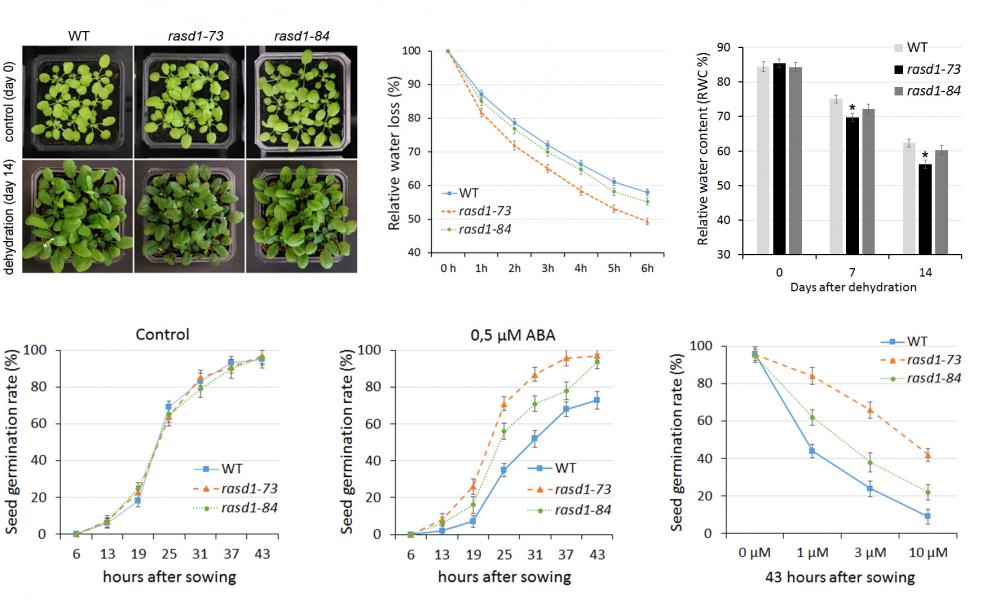Abiotic stress is one of the key parameters affecting plant productivity. Drought and soil salinity, in particular, challenge the plants to activate various response mechanisms to withstand these adverse growth conditions. While the molecular events that take place are complex and to a large extent unclear, the plant hormone abscisic acid (ABA) is considered as a major player in mediating the adaptation of plants to stress. Here we report on the identification of an ABA insensitive mutant from Arabidopsis thaliana. A combination of molecular, genetic and physiology approaches have been implemented, to characterize the AtRASD1 locus (RESPONSIVENESS TO ABA SALT AND DROUGHT 1) and to investigate its role in plant development. RASD1 is expressed predominantly in the vascular system of A. thaliana and encodes for a peptide of unknown function with no similarity to any known sequence to date. The protein is localized in the nucleus and the cytoplasm, while RASD1 impaired plants were found to be drought intolerant and insensitive to exogenous ABA and NaCl during germination and root growth. Our data indicate that RASD1 is involved in ABA‑dependent signal transduction pathways and therefore in enabling the plant to commence the response mechanisms related to seed germination and abiotic stress.
Kosmas Haralampidis
Professor, Biology
Molecular Plant Development
National and Kapodistrian University of Athens (NKUA)







